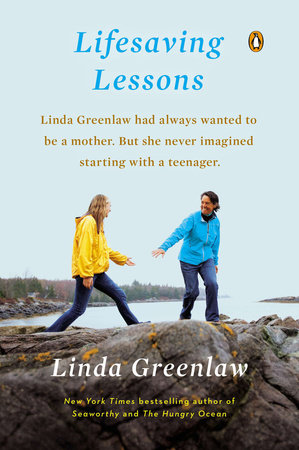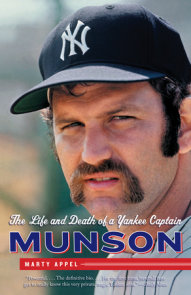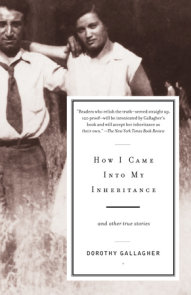READERS GUIDE
Questions and Topics for Discussion
INTRODUCTION
Linda Greenlaw first rose to national prominence through her role in the events chronicled in the book and movie The Perfect Storm. Known as “America’s only female swordfish boat captain,” she has penned more than eight books (both fiction and nonfiction), captained swordfishing operations in the deep waters off the coast of the Northeastern United States, and briefly landed in a Canadian jail. It seemed, for a fleeting moment, as if Greenlaw had few challenges left to vanquish. Enter a teenager. In Lifesaving Lessons, Linda Greenlaw recounts the story of how she became an adoptive mother to an abused teenage girl, a challenge that made wrangling gargantuan swordfish look downright breezy.
For Greenlaw, home is the remote, craggy Isle au Haut. An island off the coast of Maine with limited access to the mainland, Isle au Haut has a year-round population consisting of a close-knit community of stubborn islanders. In the summer months, the population swells to include carefree vacationers seeking solace in the island’s protected beauty. The combined community breeds a culture that prides both independence and cooperation—along with the inescapable reality that all personal business is, in fact, island business.
One spring, a middle-aged year-round resident named Ken brings his fifteen-year-old niece, Mariah, to Linda to set her up with summer work. Ken recently became Mariah’s legal guardian after moving her away from her alcoholic, abusive family in Memphis, Tennessee. He wagers that buoy painting and trap mending might be just the cure for the teenager’s attitude, which could be described as sullen, at best. In the fall, Mariah returns to school and Greenlaw returns to her solo writer’s routine, the young girl just another blip in the ever-shifting island population.
The solitude of the ensuing winter and the loneliness of island life leave Greenlaw wondering if there might be certain things she missed out on while pursuing her career—particularly the chance to have a family and children of her own. She brushes these concerns aside with the return of summer and her extended family to the island. Suddenly her house, which felt so empty in January, doesn’t seem large enough to hold all of her visitors.
However, the end of August brings a sharp disruption to summer’s carefree joy when one terrible night Ken’s guardianship of Mariah is thrown into question. The shock sends the island into a tailspin and propels Linda to the front and center of a tragic, complicated situation. She finds herself—a middle-aged woman without a child—stepping in as a mother to a troubled teenage girl.
In Lifesaving Lessons, Greenlaw recounts the details of becoming Mariah’s mother, from navigating nitty-gritty details (school, health care, clothes shopping, driving lessons) to dealing with more ambiguous concerns (setting workable boundaries, instituting discipline, finding a way to nurture someone who has never truly been nurtured, breaking a vicious cycle of abuse). With the help of friends and neighbors from around the island, Linda and Mariah find a way to fall into new roles they never thought possible—mother and daughter—and in so doing, a way to break through years of grief and hurt.
Greenlaw brings warmth, grace, and her signature humor to a painful story that needs to be told—both for the sake of the young girl in her care and for countless other children who have suffered a similar fate. Lifesaving Lessons is a story of second chances, and of one swordfish boat captain’s attempt to bring her fortitude and flexibility—and her seaworthiness—to a new life on land.
ABOUT LINDA GREENLAW
Linda Greenlaw is America’s only female swordfish boat captain. Featured in the book The Perfect Storm by Sebastian Junger and the subsequent movie (in which she was played by Mary Elizabeth Mastrantonio), Greenlaw has written eight books of her own. Her nonfiction works include The Hungry Ocean, The Lobster Chronicles, All Fishermen Are Liars, and Seaworthy. She has also written two cookbooks (coauthored with her mother, Martha Greenlaw), Recipes from a Very Small Island and The Maine Summers Cookbook, and two mysteries, Slipknot and Fisherman’s Bend. On television, she has been featured in the Discovery Channel series Swords: Life on the Line as well as on Good Morning America, Today, CBS Sunday Morning, and The Martha Stewart Show. She lives on Isle au Haut, Maine, with her daughter.
A CONVERSATION WITH LINDA GREENLAW
In your previous books, you told your own story. How did it feel to tell a story so closely intertwined with another’s? How did you decide what aspects of it were yours to tell?
As with all of my nonfiction work, Lifesaving Lessons is an account of a portion of my life. This book is 100 percent my perception of “our story.” I had my daughter’s blessings to write this story, and am happy and relieved to report that she refers to it as “our book.”
Lifesaving Lessons, which partially recounts legal proceedings involving a minor, contains a fair amount of sensitive information. How did you navigate this material?
I chose to be brutally honest. I obtained all of the court records and police records to insure accuracy.
In talking to your readers who might not be fishermen or -women themselves, are you ever shocked at what people don’t know about the profession? What are some of the strangest questions your readers have asked you?
I am more shocked by how much nonfishermen DO know about commercial fishing. All of the excitement surrounding many reality television shows, in addition to books like mine that continue to ride the wave created by The Perfect Storm, have helped to educate people about the profession. However, I have heard some fairly strange questions. “When you go to the Grand Banks from Gloucester, do you go through the Bermuda Triangle?” This is more a problem with geography than lack of knowledge of commercial fishing.
How do you make highly technical descriptions of your trade accessible to an audience that may not know the first thing about fishing?
Editors! The most frequent comment I get from editors when working on a manuscript is asking for better description of an industry term, activity, or piece of equipment. I have spent more of my life offshore than I have on dry land, so I never imagined that anyone would not understand that a fathom is equal to six feet.
How does the need for improvisation and flexibility as a swordfish boat captain come in handy as a mother?
The attributes that make me a good fisherman are not necessarily ALL good when applied to mothering. I suppose that persistence and determination are great in any situation, but being unwilling to compromise or bend is not. A fishing boat is not a democracy. So, “choosing battles” is not something that I am accustomed to doing. I fight all battles. That’s the captain in me.
When you chose to take guardianship of Mariah, did the reaction of your friends and family surprise you at all or were they predictable? How so?
I was not surprised by anyone’s reaction to my decision to become Mariah’s legal guardian, with the exception of my longtime guy-friend, Simon. He wanted no part of parenting a teenage girl. This may have had some bearing on our eventual, friendly split. My friends were all very supportive. My parents were not.
What was the importance of mental health professionals in dealing with the aftermath of Mariah’s abuse?
Counseling from mental health professionals was extremely important in dealing with the aftermath of realizing Mariah’s abuse. Mariah was not open to help at first. She eventually met a counselor she clicked with, and benefited from weekly appointments through four years of high school. The island community also received counseling, which was of great importance for all who chose to partake.
What do you think of the protections currently in place for minors who have been victims of abuse? How do communities contribute to ensuring the safety of their children?
I am not impressed with protection for minors who are victims of abuse. Just yesterday, a recently released-from-jail child abuser was allowed to move back to my island—the home of his victim. He was run off the island by an angry mob. I suspect that does not happen elsewhere. So if the community doesn’t step up and take care of their own concerns and problems, they have no one to blame but themselves. (We have no law enforcement on our island.)
In the book you must break difficult news to Mariah regarding her cat, Cowgirl. What did the “Cowgirl incident” teach you?
I learned to not walk gingerly around an issue but rather to dive right in. I worried way too long about breaking the news.
In the book you talk about how “terroir,” a term borrowed from winemaking, affects our character. Can you elaborate on this concept?
My discussion of “terroir” in the book was in relation to the age-old question of nature versus nurture. Was Mariah’s rotten disposition a result of her early upbringing and abuse? Or was she just a particularly difficult teen? I’ll never know the answer to that.
Do you still have the “Do Not Disturb” sign on your front door?
I have replaced the “Do Not Disturb” sign with a “Welcome” mat. I am currently not working on a writing project. When this changes, so will the sign!
DISCUSSION QUESTIONS
- What role do women play in Mariah’s story? What value does Greenlaw find in her female friendships that differs from the value she finds in her male friendships?
- What does Lifesaving Lessons have to say about the idea of choice between career and family? Do you think one is always at the exclusion of the other? What is the result of this choice in Greenlaw’s case and how does she feel about it?
- How is Isle au Haut characterized in the book? How does this character change through the seasons?
- Would you say the residents of Isle au Haut value community, independence, or both? What are some examples of each from the book?
- What does the word “mother” mean? Is it a biological role or an emotional one?
- What are some examples of motherhood put forth in Lifesaving Lessons?
- How does Ken’s arrest affect the entire island?
- In what ways does the island come together in celebration? In what way does the island come together in hardship?
- Greenlaw coins the term “islandish” (p. 163) to describe the tendency on Isle au Haute to resolve things “inside the bubble.” In what ways does islandish aid Mariah? In what ways does it harm her?
- What role does the idea of “home” play in this book? How does Linda’s concept of home differ from Mariah’s concept of home?





















